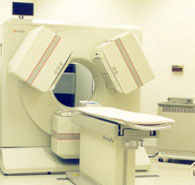Archive for the ‘PTSD’ Category
Thursday, February 19th, 2009
 We have just experienced a remarkably quick recovery from PTSD symptoms in a Vietnam veteran. The case is illustrative of the more rapid pace of recovery that is achievable with the latest neurofeedback techniques that encompass the infra-low range of EEG frequencies. The veteran has had a forty-year history of PTSD, and was rescued from homelessness by the Salvation Army here in Los Angeles. He came to our offices for intensive neurofeedback training through the auspices of the Salvation Army. In exchange for our providing services at no cost, the veteran has allowed us to make his case history available for the benefit of other clinicians. We have just experienced a remarkably quick recovery from PTSD symptoms in a Vietnam veteran. The case is illustrative of the more rapid pace of recovery that is achievable with the latest neurofeedback techniques that encompass the infra-low range of EEG frequencies. The veteran has had a forty-year history of PTSD, and was rescued from homelessness by the Salvation Army here in Los Angeles. He came to our offices for intensive neurofeedback training through the auspices of the Salvation Army. In exchange for our providing services at no cost, the veteran has allowed us to make his case history available for the benefit of other clinicians.
For scientific purposes, the veteran has agreed to undergo pre-post quantitative EEG analysis (courtesy of QMetrx) and SPECT imaging (courtesy of the Amen Clinics). As the training is still on-going, these pre-post comparisons are not yet available. However, we do have initial symptom-tracking data that already tell quite a story. Symptoms are assessed on the basis of self-report at typically three-session intervals. Severity is rated on a ten-point scale. Results for the first eighteen training sessions are shown in Figure 1. Overall symptom reduction reached 50% by session ten, and was more than 80% by session eighteen. The symptom list was broadly inclusive, and covered a number of areas not considered to be classically associated with PTSD. Eleven out of the twenty major symptoms were rated at zero by session 18. None were rated higher than 4 out of ten by session 18. The picture is one of broad improvement in self-regulatory capacity.
The picture is actually even more dramatic when data are segregated for the symptoms commonly associated with PTSD. These are shown in Figure 2. With regard to PTSD symptoms, overall improvement reached 50% within three sessions, and reached 93% in 18 sessions. Even more significantly, nightmares, flashbacks, suicidal thoughts, and binging and purging were all eliminated within three sessions. These were the most troublesome PTSD-related symptoms. The most persistent symptoms related to the quality of sleep. At the first QEEG session it became obvious that the veteran was suffering from sleep apnea. He was unable to stay awake for the QEEG assessment. This was a problem during the early neurofeedback sessions as well. By session 18, he was getting through entire alpha-theta sessions without falling asleep. Other persistent symptoms relate to motor function and mobility. Currently the veteran remains confined to a wheelchair. The improvement in hypertension is not entirely attributable to neurofeedback: as a result of the training, the veteran was motivated to be more consistent in taking his blood pressure medication. (more…)
Tags: PTSD, Siegfried Othmer
Posted in Application of Neurofeedback, Clinical Results, Efficacy, Neurofeedback, Protocols, PTSD, Veterans | 2 Comments »
Wednesday, December 10th, 2008
 We have just completed an introductory training course which included some thirty mental health professionals who are currently working with returning veterans and active duty servicemen. Represented were the United States Navy, the Marine Corps, the Veterans Administration, and the Salvation Army. The intention is to begin pilot projects at a number of facilities to demonstrate neurofeedback efficacy in realistic settings for PTSD and TBI (traumatic brain injury). We have just completed an introductory training course which included some thirty mental health professionals who are currently working with returning veterans and active duty servicemen. Represented were the United States Navy, the Marine Corps, the Veterans Administration, and the Salvation Army. The intention is to begin pilot projects at a number of facilities to demonstrate neurofeedback efficacy in realistic settings for PTSD and TBI (traumatic brain injury).
With this additional participation, we had our largest training course to date, with some 48 attendees—a logistical challenge to our team. The remaining clinicians who could not be accommodated will come to the January course. We are also prepared to extend invitations to VA personnel from other parts of the country who want to bring neurofeedback into their facilities, on a space-available basis.
The presence of so many clinicians who were not closely acquainted with neurofeedback presented an unusual challenge. Customarily nowadays attendees come with their batteries already charged because of some prior exposure to neurofeedback–either from their own experience, that of one or more of their clients, or on the recommendation of a trusted colleague. They no longer need to be convinced; they just want to learn how to do the work. Accordingly, our training program has been shaped more and more toward the tactics and the practical experience of doing neurofeedback, to the relative neglect of the rich and quirky research history of the biofeedback field and of the scientific models that underpin neurofeedback. (more…)
Posted in Application of Neurofeedback, Neurofeedback, Outreach, PTSD | No Comments »
Monday, May 26th, 2008
 Americans universally express appreciation for the service of our troops overseas. Yet so little is done to support the re-acclimation of our courageous soldiers upon their return home. This problem, which has been with us through many wars, will be exacerbated in the near future with the impending return of tens of thousands of veterans from Iraq — many of whom have served multiple tours of duty. Americans universally express appreciation for the service of our troops overseas. Yet so little is done to support the re-acclimation of our courageous soldiers upon their return home. This problem, which has been with us through many wars, will be exacerbated in the near future with the impending return of tens of thousands of veterans from Iraq — many of whom have served multiple tours of duty.
Every soldier loses something in the battlefield. Certainly, the profound effects of PTSD, depression, and traumatic brain injury are only part of the story. Extended tours of duty under the most challenging conditions of urban warfare have made these and other problems worse. Medical advances are now allowing many soldiers to survive injuries that would not have been survivable in previous wars. But there is no comparable remedy for the mental health consequences suffered by the soldiers. These veterans need assistance they are not currently receiving as they come home to rebuild their lives, their families and their businesses. (more…)
Posted in Application of Neurofeedback, Neurofeedback, PTSD, Research, Veterans | 2 Comments »
|
|
Subscribe to Email Newsletter
The EEG Info Newsletter circulates via email at least once a month. A variety of topics related to the Neurofeedback / EEG Biofeedback field are covered in over 200 articles.
|
 We have just experienced a remarkably quick recovery from PTSD symptoms in a Vietnam veteran. The case is illustrative of the more rapid pace of recovery that is achievable with the latest neurofeedback techniques that encompass the infra-low range of EEG frequencies. The veteran has had a forty-year history of PTSD, and was rescued from homelessness by the Salvation Army here in Los Angeles. He came to our offices for intensive neurofeedback training through the auspices of the Salvation Army. In exchange for our providing services at no cost, the veteran has allowed us to make his case history available for the benefit of other clinicians.
We have just experienced a remarkably quick recovery from PTSD symptoms in a Vietnam veteran. The case is illustrative of the more rapid pace of recovery that is achievable with the latest neurofeedback techniques that encompass the infra-low range of EEG frequencies. The veteran has had a forty-year history of PTSD, and was rescued from homelessness by the Salvation Army here in Los Angeles. He came to our offices for intensive neurofeedback training through the auspices of the Salvation Army. In exchange for our providing services at no cost, the veteran has allowed us to make his case history available for the benefit of other clinicians.
 We have just completed an introductory
We have just completed an introductory  Americans universally express appreciation for the service of our troops overseas. Yet so little is done to support the re-acclimation of our courageous soldiers upon their return home. This problem, which has been with us through many wars, will be exacerbated in the near future with the impending return of tens of thousands of veterans from Iraq — many of whom have served multiple tours of duty.
Americans universally express appreciation for the service of our troops overseas. Yet so little is done to support the re-acclimation of our courageous soldiers upon their return home. This problem, which has been with us through many wars, will be exacerbated in the near future with the impending return of tens of thousands of veterans from Iraq — many of whom have served multiple tours of duty.